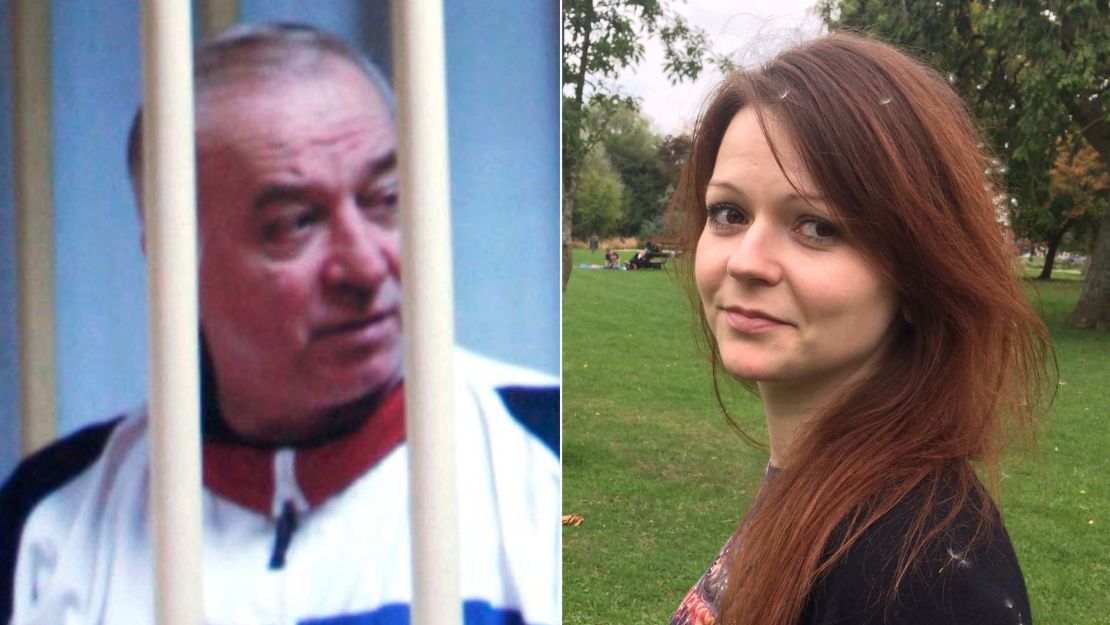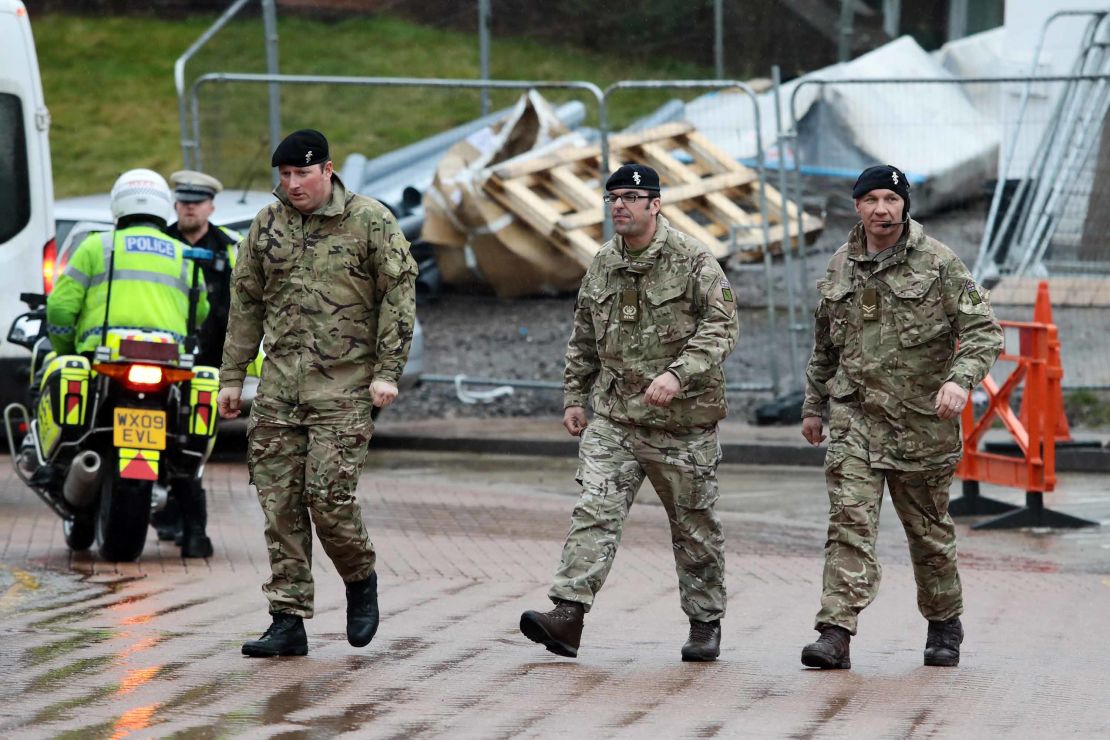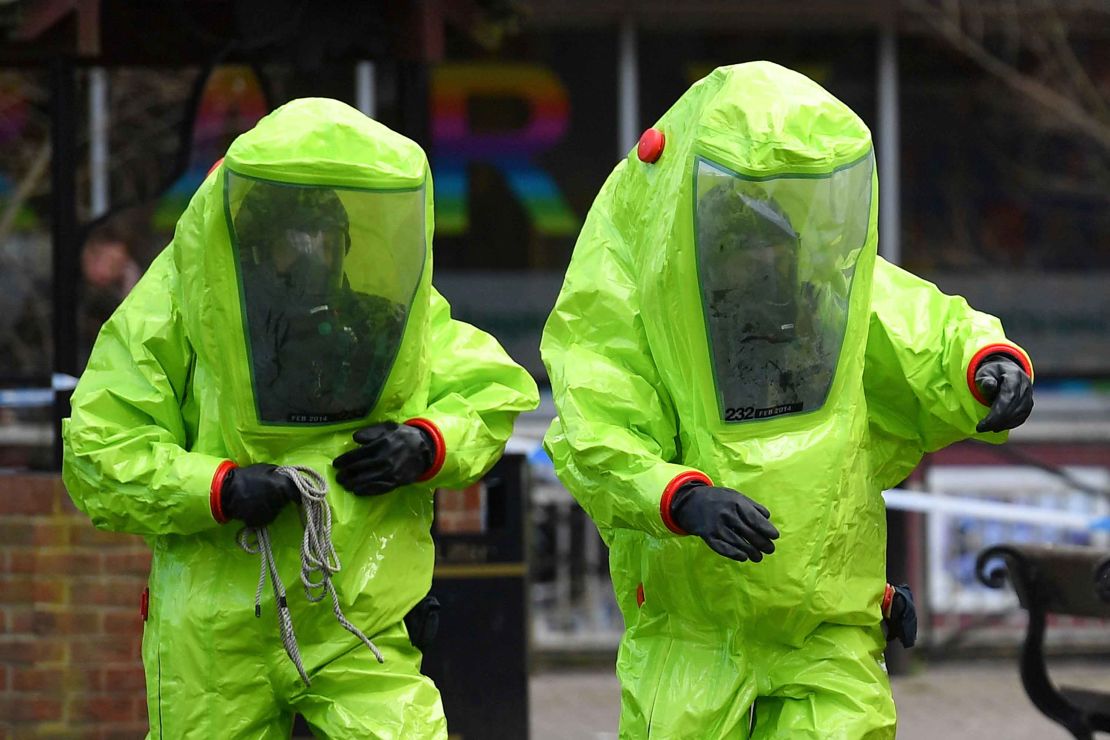Britain’s National Security Council met Monday to discuss the latest intelligence on the attempted murder of former Russian double agent Sergei Skripal and his daughter Yulia, as pressure mounts on UK Prime Minister Theresa May over the alleged involvement of Moscow in the attack.
Multiple UK media reports suggested that the government is close to finalizing a number of retaliatory measures, including diplomatic expulsions and sanctions, should a Russian link be formally established.
Such a development would plunge relations between the UK and Russia to their lowest ebb since the end of the Cold War.
Speaking from Moscow, Russian President Vladimir Putin said Monday the UK should “get to the bottom” of what happened to the former spy in the English city of Salisbury before talking to him, according to the state-run RIA news agency.
Putin was replying to a BBC journalist, who asked if Russia was responsible for attacking Skripal and his daughter with a nerve agent.
According to RIA, he replied: “Get to the bottom of [things] there, and then we will discuss this with you”.
The Skripals, believed by authorities to have been deliberately targeted, were found slumped on a bench near a shopping center in Salisbury eight days ago. Police say a nerve agent was used in the attack.

On Monday, the Chair of the UK’s Foreign Affairs Committee, Tom Tugendhat, said the attack was “looking awfully like it was state-sponsored attempted murder.”
Speaking to BBC Radio, Tugendhat said he was expecting the Prime Minister to make an announcement soon. “And frankly, I’d be surprised if she did not point the finger at the Kremlin.”
Tugendhat, who is a member of the governing Conservative party, said the UK would need to introduce firm measures in the event of such an announcement.
“The key with responding to Russia is making sure we make Putin realize what we’re doing, and make people who support him realize that supporting him isn’t a great idea,” said Tugendhat. “And that, to be honest, doesn’t mean general sanctions. That means very specific sanctions.”
Tugendhat’s comments follow those of UK Chancellor, Philip Hammond, who on Sunday indicatedthe government could move to support the introduction of US-style “Magnitsky Act” sanctions legislation on Russian officials, should sufficient evidence be provided linking Moscow with the nerve agent attack.
“If there were to be an involvement of a foreign state, evidenced by this investigation, then obviously that would be very serious indeed, and the government would respond appropriately,” Hammond told the BBC’s Andrew Marr show.
The Magnitsky Act, first introduced in 2012, provides US lawmakers with sweeping powers to freeze assets and place travel restrictions on foreign government officials involved in human rights abuses.
Downing Street has so far resisted calls among opposition Labour MPs to draft similar laws in the UK.
However, on Sunday the Chancellor appeared to signal a shift in the government’s position.
“We’re seeking to reach an accommodation,” said Hammond in response to a question on the Magnitsky Act. “The proposals that were put forward actually create a power that we already have.”
Possible consequences
Exactly how Britain might respond to evidence that implicated Moscow in the attack remains unclear. Possible options might include the expulsion of Russian diplomats and UK-based pro-Kremlin oligarchs; financial restrictions on figures linked to the Kremlin; and diplomatic efforts involving EU and US allies.
The Russian Embassy Monday accused the UK government of playing a “very dangerous game” with the investigation, adding it could have “long-term consequences for our relations”.
In a statement on its website, the embassy says it had requested information from the UK Foreign Office on the health of Skripal and his daughter, as well as on the investigation.
The embassy said the issue “has become quite a negative factor for the relations between our countries”.
“We would like to stress once again that we are outraged by the anti-Russian media campaign, condoned by the Government, that influences the investigation and has a psychological effect on British residents. Our compatriots and British nationals of Russian origin are worried about their future in this country. UK-based Russian journalists are receiving threats.”
Previously, the UK Foreign Secretary Boris Johnson said the government would “respond appropriately and robustly,” promising that “no attempts to take innocent lives on UK soil will go unpunished.”
Johnson also called into question the UK’s diplomatic representation in the 2018 World Cup, to be held in Russia later this year.

Widening threat
Monday’s meeting came as public health authorities warned hundreds of people could be affected by the attack, after traces of the nerve agent were detected in the Salisbury branch of Italian restaurant Zizzi and The Mill pub.
Speaking with reporters Sunday, England’s chief medical officer, Sally Davies, urged customers who visited either location on the same day as Sergei Skripal to wash their clothes and any possessions they had with them at the time.
The announcement follows the deployment Saturday of an additional 180 military personnel to help police investigate several sites amid concerns over potential contamination.
Police have so far identified more than 200 witnesses and 240 pieces of evidence in the attempted killing, UK Home Secretary Amber Rudd said Saturday.
Police previously said they know what nerve agent was used in the attack, but have declined to name it or how they suspect it was administered.
The police officer who found the Skripals, Detective Sgt. Nick Bailey, remains hospitalized in serious condition but is “conversing and engaging” with visitors, said Rudd.

Who is Sergei Skripal?
In 2006, Sergei Skripal was sentenced to 13 years in prison for spying for Britain, according to Russian state media accounts of the closed hearing.
Russian court officials at the time said he’d received at least $100,000 for his work for MI6, the British intelligence service. He was granted refuge in the UK after a high-profile spy exchange between the United States and Russia in 2010.
His daughter Yulia is thought to be one of the few members of his immediate family still alive after his wife and son died in recent years. She was visiting him from Russia at the time of the incident.
CNN’s Mary Ilyushina in Moscow and Simon Cullen in London contributed to this report.

